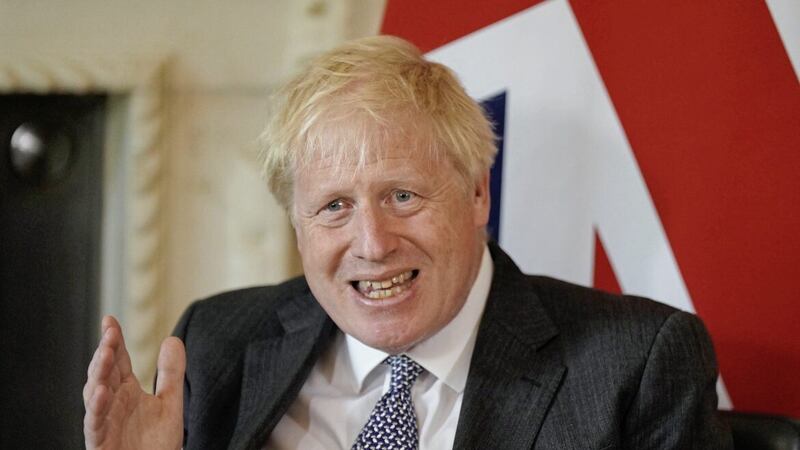The consensus in Boris Johnson’s prime ministerial obituaries was that he would be remembered for three things in particular: the chaos of his tenure, the brutal defenestration which ended it and ‘getting Brexit done.’
In fairness to him I think he should also be remembered for standing shoulder to shoulder with Ukraine right from the start. And while mistakes were made at the beginning of the Covid crisis—as they were all over the world, obviously—he did oversee a hugely successful vaccine rollout programme.
He does want ‘getting Brexit done’ to be the centrepiece of his legacy; which is entirely appropriate of course, because it’s a thumping lie. He didn’t get it done. The votes required for the Brexit referendum victory were not delivered by Johnson (who only came late to the game in terms of supporting Leave). They were delivered by Nigel Farage, who was able to both reach and win over voters who would never have been reached by Johnson. Farage inspired and steered a regenerated English nationalism and made it an electoral force to be reckoned with. He was nothing like them, obviously, but they believed his anti-establishment shtick and voted Leave—the first time many of them had voted for years.
And if ‘getting Brexit done’ meant taking all of the United Kingdom out of the EU and rebuilding it as, in Johnson’s words, ‘a strong, sovereign, independent nation built around a binding union,’ then he failed in that, too. He left Northern Ireland partly in the EU. He ignored the views of the Remain majority in Scotland and Northern Ireland and, in so doing, emboldened and renewed Scottish and Irish nationalism. He undermined the ‘one nation’ ideology which underpinned the UK and replaced it with a single nation ideology in which the 'English’ were encouraged to view themselves as supreme.
Johnson’s greatest debilitating weakness was that he was never a conviction Leaver. He had tossed the pro and anti-arguments around in Daily Telegraph columns for years before the referendum, amusing himself and playing to a readership which liked his well-rehearsed and often brilliantly written gung-ho jingoism. But it was never clear how serious he actually was. And nor was it clear—it may never be—whether his decision to opt for Leave was motivated more by a detestation of David Cameron than a supposed detestation of the EU.
In an interview with Farage a few weeks before the referendum I asked him whether he regarded Johnson as an asset for the Leave side: “Who knows. I don’t take it for granted it’s what he actually believes. Even if we win—and I think we’re nudging there—nobody knows how he would play the result. He’ll certainly send a section of former and existing Conservatives and others into our camp, which is important. He’ll also claim to have been entirely responsible if we do win.”
The rest, dear reader, is history. His immediate reaction to the Leave victory was to line himself up as David Cameron’s successor (only to chicken out when Michael Gove said he would stand) and then spent the next couple of years undermining Theresa May into resignation. It was classic Johnson. As was his serial shafting of the DUP on the protocol and his belated (still unfulfilled) promise to sort out the problems for Jeffrey Donaldson.
He has left—and again it is no surprise—his successor with a worse mess than he inherited. Even with a solid electoral majority in December 2019 and the opportunity it afforded him to draw the various elements of the party together it is now more fractious than it was. At one point earlier this week about 15 people were actively considering leadership campaigns and when the deadline for candidates was reached on Tuesday evening eleven were still in the field.
Whoever wins—and at the time of writing it looks like it might be Sunak or Truss (although surprises are still possible from people like Penny Mordaunt)—will face the probably impossible task of uniting the party in time for the next election. He or she will also have to address a cost-of-living crisis; a still-rising rate of inflation; a possible recession; and the approach of autumn/winter seasons which will bring home the consequences of massive hikes in oil, gas, petrol, electricity and food prices.
How the protocol dilemma will be resolved is still anybody’s guess. While Johnson and some of the candidates to succeed him seem to relish the idea of a public battle with the EU, I’ve yet to be persuaded they are ready for the consequences of a possible trade war, particularly with all the other problems around them. It may not be ‘dreary steeples’ territory, but devolution remains at risk. Which may explain why the DUP is being uncharacteristically quite about the next prime minister. And sensibly so, in my opinion.







